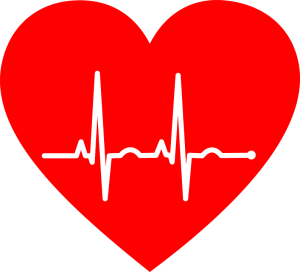Even though our bodies need cholesterol, too much of the ‘bad’ kind of cholesterol, called low-density lipoprotein (LDL), can cause serious health issues. These include plaque deposits that increase your risk of heart disease, heart attacks, or stroke.

Just as there have been many advancements in heart disease treatments, so too have there been advancements in how we treat high cholesterol as our knowledge of the condition improves. The more we learn about the relationship between high cholesterol and heart disease, the more effective modern heart disease treatment methods become.
Cholesterol and Heart Disease
As a significant contributor to heart disease, it’s important that cholesterol levels are kept under control. Otherwise, plaque continues to build up in the arteries, which raises your blood pressure and puts more strain on your heart. These plaque deposits can become blockages, making them especially dangerous.
That said, not all cholesterol is bad for you.
Some can actually improve your health, despite our initial understanding of how it interacts with our bodies.
LDL and HDL
Previously, it was believed that all cholesterol was bad, and this is still a popular belief outside of the medical community. However, we now know that there are both good and bad types of cholesterol and that the good kind can be used to reduce the amount of bad cholesterol in our bodies.
LDL is considered bad cholesterol because it directly contributes to the arterial buildup of plaque. It comes from saturated and trans fats, which usually come from animal products and heavily processed foods, respectively.

High-density lipoproteins (HDLs) are considered good cholesterol. They’re responsible for bringing LDL to your liver, where it can then be broken down and discarded. Eating foods high in HDL like olive oil and certain fish can help you counteract the negative effects of a diet high in LDL.
Of course, even our knowledge of the distinction between LDL and HDL is continually evolving, allowing us to develop more effective treatment methods.
Advancements in Cholesterol and Heart Disease Treatment Methods
Modern methods for treating high cholesterol primarily involve the use of medications and changes to your diet and exercise habits.

Cholesterol Medications
Some medications are designed to reduce cholesterol production in your liver. These are known as ‘statins,’ and they include medications such as Simvastatin, Rosuvastatin, and the most common, Atorvastatin. While statins can reduce the overall level of cholesterol coming from your liver, they do not have any effect on dietary cholesterol, so they must be combined with healthy eating habits.
There are also many statin alternatives. These include fibrates, niacin or vitamin B3, and omega-3 supplements, which all lower triglycerides.
Reverse Cholesterol Transport
Not all methods used for treating high cholesterol and heart disease have to involve medications. You can significantly improve your heart health by using reverse cholesterol transport, which occurs when HDL transports cholesterol out of the arteries and back to the liver. This helps decrease the accumulation of LDLs in the arteries, meaning less opportunity for plaque formation.
While excessive amounts of LDL are known to clog arteries, just eliminating bad cholesterol from your diet isn’t enough. You also need to increase your HDL levels to combat the bad effects of overall high cholesterol efficiently. Studies show that people with higher than average HDL levels have the lowest risk of developing heart disease, especially if they’ve been including HDLs in their diet from a young age.
To take advantage of reverse cholesterol transport, you can use good nutrition in conjunction with the previously mentioned medications. Changing your diet is especially important, as it can prevent the development of heart disease altogether if you are committed to eating healthier. You can get HDLs from various foods, including beans, olive oil, fatty fish, fruit with high fiber content, nuts, and whole grains.
Final Thoughts
Moderating your cholesterol is a key part of keeping your heart healthy and reducing your risk of developing heart disease. The sooner you can improve your cholesterol, either through medications or lifestyle changes, the less risk you have of damaging your arteries and harming your heart, and the better your overall health will be.
